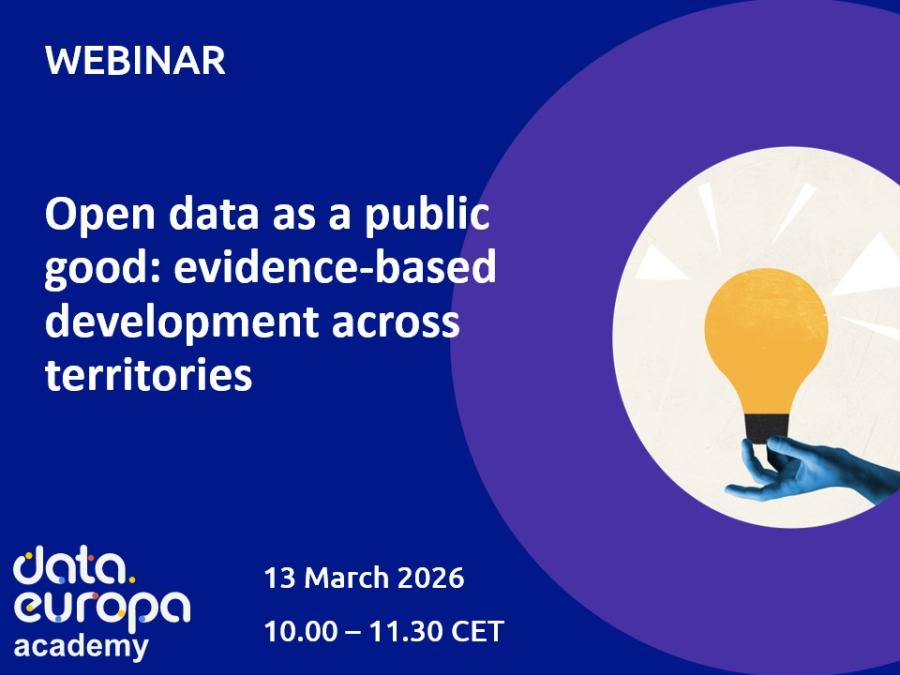Ir-Renju Unit
Blogs minn: Ir-Renju Unit
Skip results of view Country Insight Blogs

Bus Open Data Service
Earlier this year the Department for Transport (DfT) publicly launched its Bus Open Data Service (BODS), a crucial enabler of the UK government’s manifesto commitment to open up data about local bus services across England from 2020. Buses Buses serve economies by helping people to access work and helping to tackle congestion. They have an important contribution to make in reducing emissions in cities through moving people from cars onto cleaner ultra-low and zero emission mass transit. Each year, over 4.3 billion bus journeys are made in England, of which around half are made in London

Use cases in: Ir-Renju Unit
Skip results of view Use cases
The segment of small and medium enterprises (SMEs) has been severely hit by the COVID 19 pandemic. As Europe sets out for economic recovery, the survival of SMEs is essential. The FinLine app will help SMEs assess their financial viability and provide free customised advice for suitable grants and investment options. Also, it will provide a tool for building a community willing to share financial and technical advice as well as people’s skills during the post COVID 19 recovery.
The segment of small and medium enterprises (SMEs) has been severely hit by the COVID 19 pandemic. As Europe sets out for economic recovery, the survival of SMEs is essential. The FinLine app will help SMEs assess their financial viability and provide free customised advice for suitable grants and investment options. Also, it will provide a tool for building a community willing to share financial and technical advice as well as people’s skills during the post COVID 19 recovery.
The goal of the EU Twinnings application is to allow users to find their area’s twin (an area with the most similar statistics data) and explore similar regions of the EU. Simply fill in the city name and find the most similar and least similar cities. The similarity is expressed in percentages. There is also a European map provided that users can hover over to see how similar each city is to the one filled in.
Rapporti fi: Ir-Renju Unit
Skip results of view Dokumentazzjoni

Study
Data sharing as a service: will data services remove intellectual property rights from the picture, and at what cost?

Download
Avvenimenti ta’ Data Miftuħa fi: Ir-Renju Unit

Do you want to explore how open data can support better governance in rural areas and help policymakers respond to local needs beyond the city? Join us for the upcoming data.europa academy...
Bħalissa m’hemm l-ebda avveniment imminenti
Open Data News in: Ir-Renju Unit
Skip results of view L-Aħħar Aħbarijiet tad-Data Miftuħa





On Friday 16 February 2024, from 10.00 to 11.30 CET, the data.europa academy hosted the webinar ‘Open data maturity 2023: best practices across Europe‘ which highlighted Slovakia's and Serbia's accomplishments in the field of open data. With nearly 600 registrants, the event underscored the growing interest and commitment to open data across the continent. An expert from data.europa.eu initiated the session by presenting the ODM results , setting the stage for in-depth country analyses. Following this introduction, the narrative shifted to Serbia . In just two years, Serbia demonstrated

On 1 March 2024 , from 10:00 to 11:00 CET , our webinar on "New b usiness m odels for d ata- d riven s ervices" is set to provide fresh insights into the utilisation of open data. Th e event, building on the data.europa.eu discussion paper , aims to explore how public sector information, when made available as open data, can be purposefully re-used to creat e value for both public and private sectors . In recent years, the focus on open data has shifted towards understanding and meeting end-user needs. Th e webinar will examine the potential of open data in Europe, exploring how it can drive

This year marks the fifth anniversary of RescEU, an initiative by the European Commission that has strengthened disaster response mechanisms across Europe. Established to extend the EU Civil Protection Mechanism, RescEU embodies a deep commitment to protecting citizens from diverse disasters and managing emerging risks effectively. Since its launch in 2019, RescEU has served as a robust reserve of European capacities, fully funded by the EU. This includes a fleet of firefighting aircraft, medical evacuation planes, and critical medical supplies and field hospitals, ready to tackle health

The International Day of Women and Girls in Science, celebrated on 11 February, highlights the critical role women and girls play in science and technology. This year, the focus is on "Women in Science Leadership: A New Era for Sustainability," recognising their contribution to tackling global challenges such as health and climate change. The diversity in research, brought by women, brings fresh perspectives, talent, and creativity, essential for sustainable development. Despite progress in higher education, women continue to be underrepresented in Science, Technology, Engineering, and



